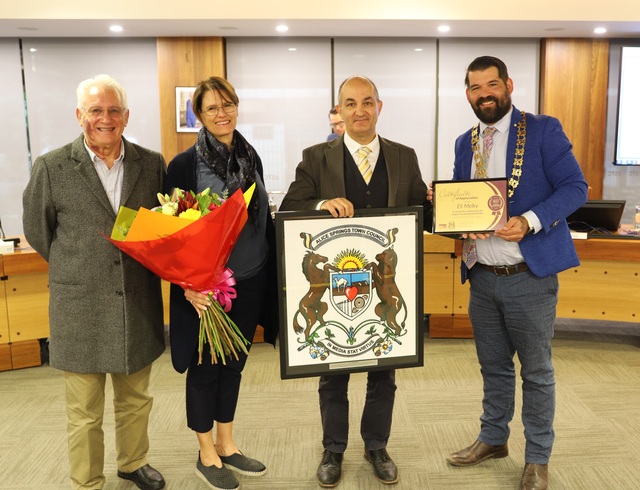Keynote speaker at the recent Local Government Association of Queensland Annual Conference, Michael Sandel, Professor of Government at Harvard University, spoke about the crucial role of Local Government ‘as a vehicle for stopping the erosion of community’.
In this era of increased globalisation, where power and decision making are becoming more and more distant, he believes ‘Local Government will matter more not less, but it will matter in a different way, engaging the deepest questions of our democracy’.
Professor Sandel said that with the world’s economies interconnected and national boundaries less important, the political consequence of these changes is creating winners and losers, both within nations and among nations.
With global financial markets controlling the economic rules, national sovereignty is being seriously undermined. As domestic political control is becoming more and more muted, this has led to disillusionment with established mainstream parties resulting in the rise of extreme left and right wing parties in a number of countries.
Referring to them as ‘parties of protest’, Professor Sandel sees these as being populist, fundamentalist, protectionist and often racist. He said that ‘this politics of resentment speaks to people’s fears and their sense of disempowerment as the moral fabric of community unravels’.
Turning to our current Federal Election campaign, he rightly warns that if it continues to concentrate on the economy and tax issues, it will fail to address the concerns and frustrations of many voters, opening the door for this void or vacuum to be filled by protest politics, the politics of fear and resentment.
So where does Local Government sit within all this and why is its role vital? Professor Sandel believes that as well as losing its control over sovereignty, National Governments are too far removed to answer the needs of the community. On the other hand, Local Government is, at least potentially, equipped to address people’s worries and frustrations.
Advocating that Local Government is not just about providing services, he said Councils must find a way of building communities and cultivating citizenship.
This, he believes, will not be an easy task. With winners and losers from globalisation, the gap between the rich and the poor is widening. In this climate of growing inequality, there cannot be a sense of community if people feel alienated. As an example of the huge divisions becoming evident, he referred to the increase in what has been termed the ‘gated society’, where the rich retreat almost totally from the public realm behind their security perimeters to their private pools, tennis courts, roads and security guards.
The task for Local Government in the new millennium, he said, is to go beyond services to address what National Governments are failing to address – disempowerment.
For this reason, the Professor correctly asserts that Local Government is in the front lines in the battle for democracy. Its ability to draw communities back together, through public space and ongoing civic interaction, will go a long way in determining the fate of democracy in the global age.
With so much resting on Local Government, it is essential that its current relationship and vital partnership with the Federal Government not only remains intact, but is strengthened. Therefore, any attempt to derail this, by stepping back to the past and handing Local Government funding to the State Governments, must be totally rejected.







